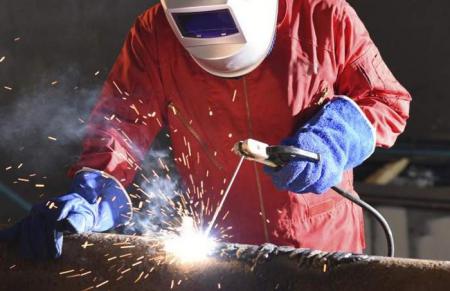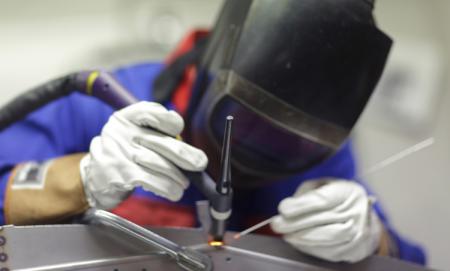


At the Community College of Baltimore County (CCBC), in partnership with Earlbeck Gases and Technologies, students are learning the fundamentals of welding to fill the growing demand for skilled professionals. With over 20% of welders in the U.S. aged 55 or older, the need for new workers is critical, especially with large infrastructure projects like the new Key Bridge in Baltimore set for completion by 2028.
Instructor Josh Dicus demonstrates shielded metal arc welding to a class of students, emphasizing the importance of precision and safety. Students like 20-year-old Hunter Leilich are drawn to welding for its hands-on nature and career opportunities, such as ship repair or bridge construction. Despite the challenges, including sparks and the need for careful technique, students are eager to master the trade.
Welding is a physically demanding and sometimes dangerous profession. Dicus, who has experienced injuries like burns and reattached fingertips, stresses the importance of safety and proper technique. Welders must also adapt to working in extreme conditions, from summer heat to winter cold, and in confined spaces or at heights.
Despite these challenges, welding offers competitive pay, with a national median salary of $55,600, according to the American Welding Society. However, attracting young people to the trade remains a hurdle due to outdated perceptions of welding as a "dirty job." Industry leaders like Josh Wyner of the Aspen Institute emphasize that welding has become more technologically advanced, offering a modern and rewarding career path.
CCBC President Sandra Kurtinitis is optimistic about the expanded program, calling it a "rich opportunity" for students of all ages. The program costs around $2,000, but some employers, like Baltimore County, are covering the cost for their workers to upskill.
Older students, like 63-year-old Brad Austin, are also taking advantage of the program to refine their skills and correct decades of informal techniques. Austin, who learned welding on a farm, appreciates the formal training and sees it as a valuable investment in his career.
Meanwhile, Allison Earlbeck, CEO of Earlbeck Gases and Technologies, highlights the broader need for welders to rebuild neglected infrastructure across the U.S. The partnership between CCBC and Earlbeck aims to address this need by preparing a new generation of skilled professionals.
The expanded welding program at CCBC is a vital step in addressing the national shortage of welders. By providing hands-on training, fostering safety, and breaking outdated perceptions, the program is equipping students with the skills needed to succeed in a high-demand field. Whether for young beginners or seasoned workers looking to upskill, welding offers a pathway to a stable and rewarding career.

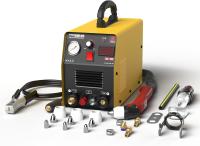



They are already part of the Job Board
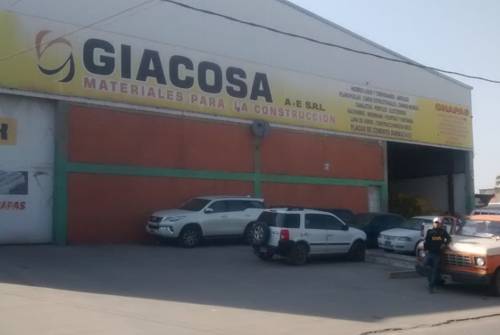

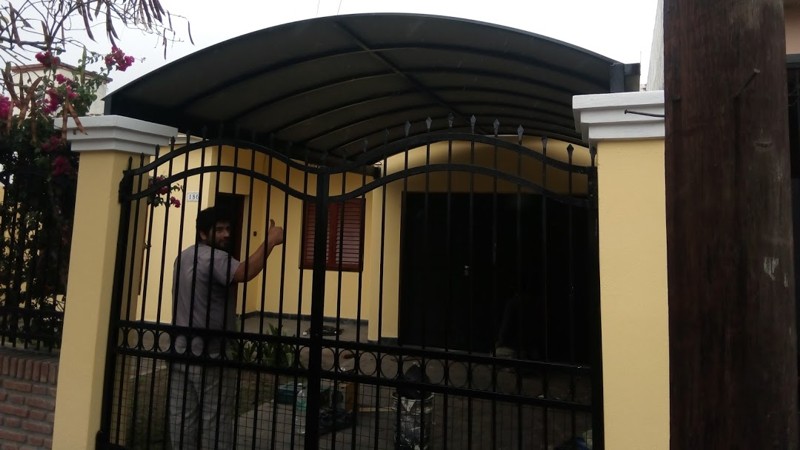
Relacionados:

